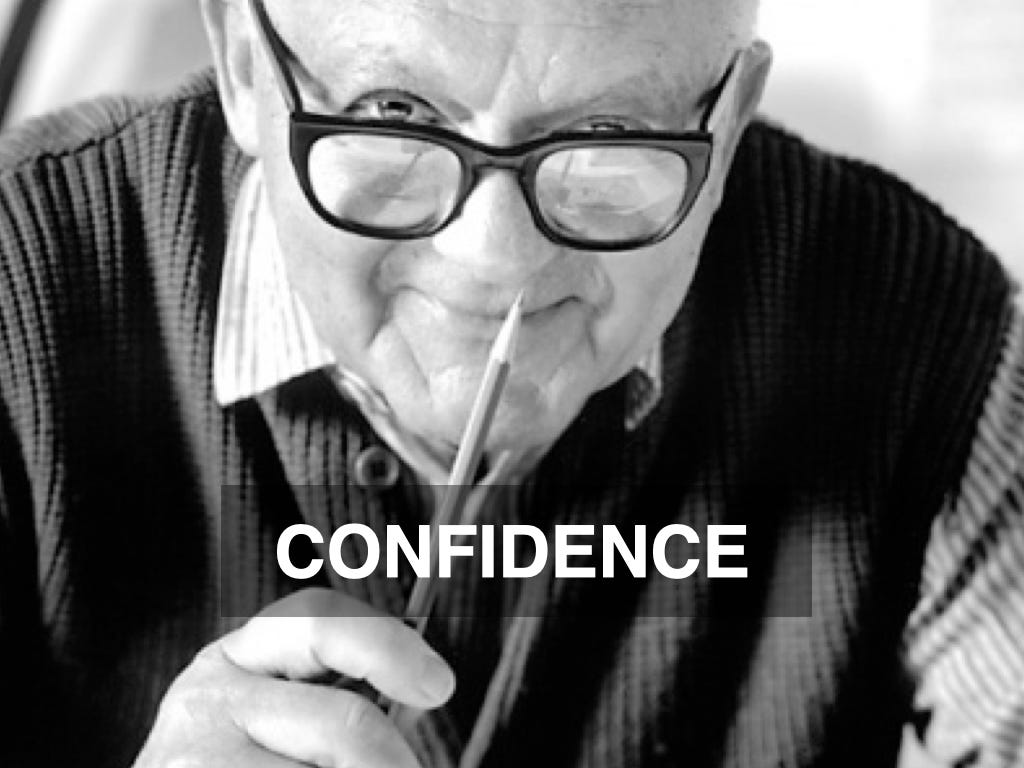The article version of the talk I did at Refresh Glasgow.
Where do you draw the line on ethical decisions? When does your conscience start to bite, forcing you to decide whether to stop what you're doing or carry on despite the pain? For those of us whose work in the creative industries (designers, writers, artists, marketers, etc.), questions of integrity are complicated by anxieties over career advancement, social acceptance, and financial gain. It is easy to justify compromising your integrity to please a client or someone you admire, however I argue that it is never worth it.
What is integrity?
Integrity is not caring what other people think about you
Earlier this year, the Australian geriatric nurse Bronnie Ware published a book about the regrets of the dying. The number one wish was to have had "the courage to live a life true to myself, not the life others expected of me."
Human beings thrive in social situations and become depressed when they are isolated, so it is unsurprising that people constantly compromise their integrity for social acceptance. As teenagers we do stupid things like smoking and wearing weird clothes. As adults we do more egregious things for social acceptance, such as working in dull dispiriting jobs to buy expensive products that supposedly impress people. We become a prisoner of people's perceptions.
The phenomena of living for others has become horribly apparent with the success of online social networks, which frigs our sense of self-worth with likes and retweets, encouraging us to abandon our integrity and play to our putative audience. Thus, the effervescent creativity of the early internet has been canalised and controlled, reduced to vacuous forms like Facebook and Twitter posts, which leech creativity like algae on a lake, suffocating larger species. I sometimes wonder if it is even possible to have a coherent sense when you are constantly thinking about other people’s reactions. After all, everything worth saying is bound to offend someone.
Integrity is having the courage of your convictions
Nobody is born with integrity. Parents help shape our moral reflexes with their Pavlovian conditioning, but we generally discover our integrity through experience. You try things out, realise you don't like some of them, and decide not to do them again. Integrity is having the confidence to say ‘No’ things you dislike or disagree with despite numerous enticements.
For the creative, confidence is the difference between being treated like a cleaner or a doctor. People employ a cleaner because they can't be bothered to do clean their house themselves. People employ a doctor because the doctor is a professional with expertise they lack. Being an expert gives you the confidence to stand up to people and not letting rank deflect you from the truth.
Integrity is never doing things you disagree with, especially not for money
Life is a long-term project. Every short-term project you undertake quickly becomes a part of your on-going narrative, another addition to the portfolio of stuff you build up over the years. When you look back on your life do you want to look back on a series of horrible encounters with people you hate or do you want to create something beautiful with those you love. With integrity you'll never be embarrassed by the question 'what do you do?' You will believe in what you do and be proud of your projects.
Every time you go against your ethical principles you blur the line between right and wrong, making it more difficult to make decisions. With integrity, life is easier because you know exactly what you need to do. [expand this thought]
Be an artist, draw the line
The main objection to a life of integrity is that it is a luxury. As George Orwell writes in Keep the Aspidistra Flying "Your money goes and your freedom with it." Fortunately, there are plenty of inspirational examples of people who do great work without selling out, people like Alan Moore, Paul Rand, Daniel Kitson, Tino Sehgal, Jean-Luc Godard, Steve Jobs, Kate Bush, Ai Weiwei, Momus, Pina Bausch, and Samuel Beckett. People who show that whilse integrity is difficult to obtain, the benefits grow exponentially.
This article was originally published in issue eight of New Escapologist magazine.
Read my other New Escapologist articles.





